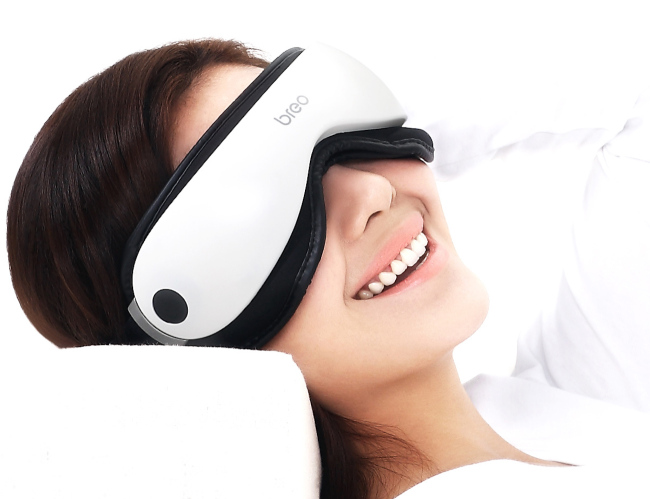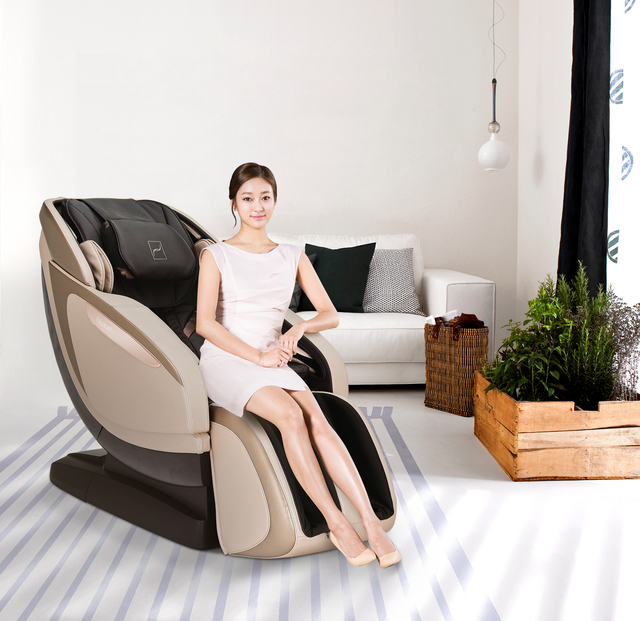To tackle pain in her back and hip, graduate school student Lee Yeon-hee uses a lacrosse ball every night to give herself a massage.
“After rolling my back on this small massage ball for about 10 minutes, I can feel that the muscles are relaxed. I save both time and money by doing this simple exercise every night,” she said.
Lee is one of a growing number of people purchasing massage products that can be used at home.
According to online shopping website G-market, sales of such products jumped 400 percent last month, compared to the previous month.
Sales of the lacrosse ball increased 191 percent, while stretching bands saw a 178 percent increase in sales. Other massage products like balance rings and Zen rings were also popular, the company said.
Massage-related products have also expanded to the consumer electronics market, with portable devices, such as eye massage products, becoming popular.
“I use the Breo eye massager twice a day, once after waking up and once before going to sleep. After hours of staring at the computer screen at work, I give myself the eye massage to not only relax my eyes but to prevent my eyes from getting more tired. I also use it for long flights during business trips,” said 36-year-old office worker Cha Keun-hwan, who has been using the device for about a year.
 |
Breo’s eye massage device (Breo) |
Industry insiders say portable massage devices can help students and office workers, who tend to sit for long hours, relax their muscles quickly by stimulating the muscles.
A leader in the Korean massage device market is Bodyfriend, a health and wellness technology company known for its premium massage chairs.
“Our differentiated medical and design development as well as exclusive technology offer users a customized massage experience,” Bodyfriend official Na Seok-yoon told The Korea Herald.
The company sold at least 110,000 massage chairs last year despite its high prices -- its latest massage chair model costs around 3 million won ($2,683) to 4 million won per chair.
“When massage chairs were first developed in the Japanese market, they were originally targeted toward those in their 50s and older. That’s why massage chairs were considered as gifts for parents when they first entered the domestic market. But they are now receiving wider attention among various age groups,” said Na, adding that about 35 percent of Bodyfriend rental service users are those in their 30s and 40s.
 |
(Bodyfriend) |
For those who prefer the human touch, massage parlors are another option.
The Foot Shop, a well-known franchise here, offers various types of massages.
A 19-year-old high school student surnamed Kim said she likes to visit massage shops due to their accessibility and affordability.
“Even late at night after my academy classes are finished, I can stop by and get a quick massage on the shoulder. I don’t need to pay a lot of money. There are also a variety of massage courses, from aroma to sports or Thai massage, so I choose which course to get depending on my fatigue level,” said Kim.
By Kim Da-sol (
ddd@heraldcorp.com)









